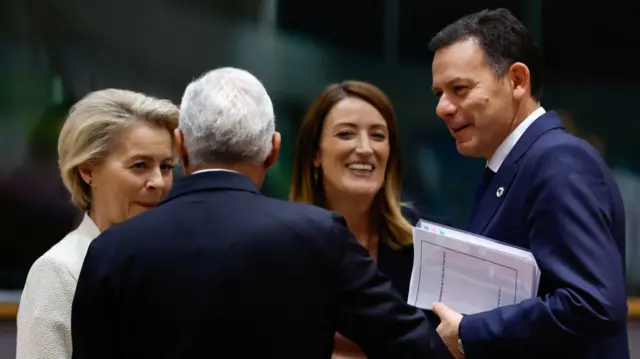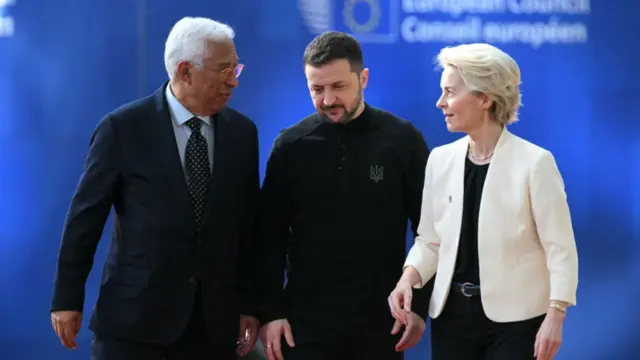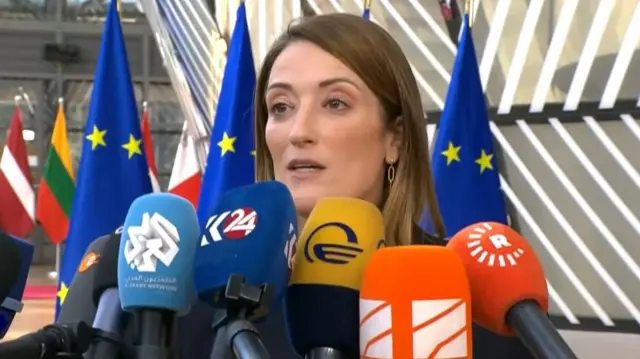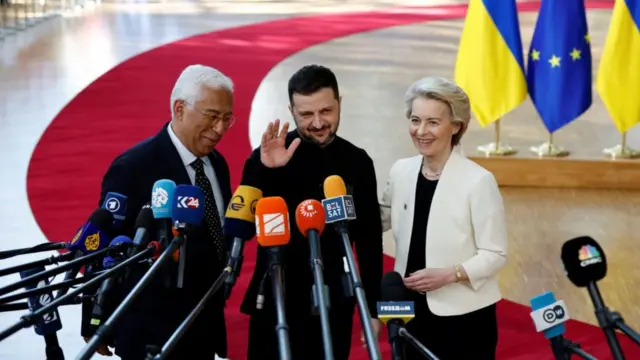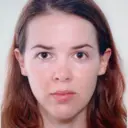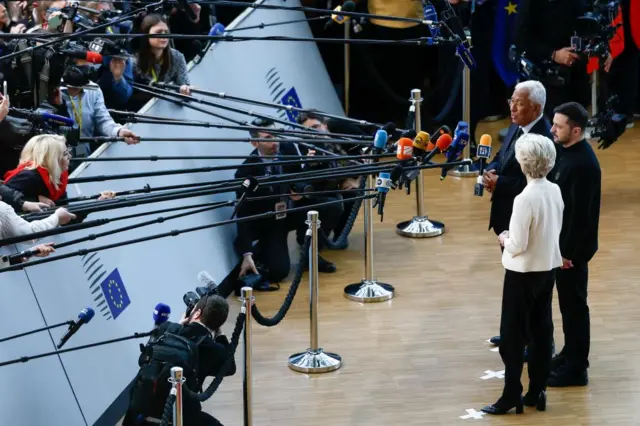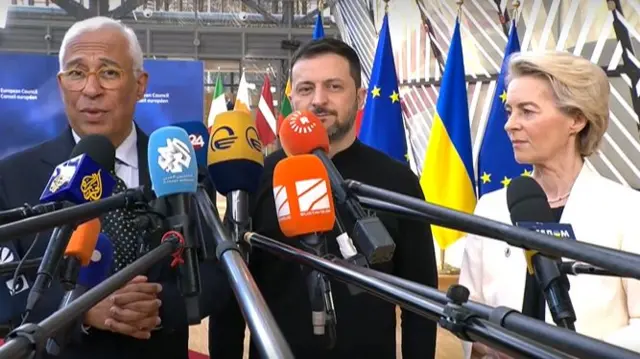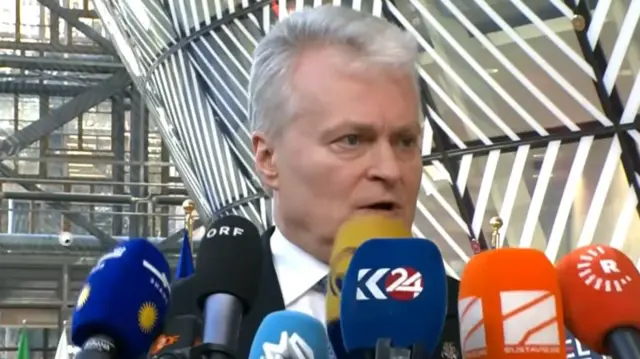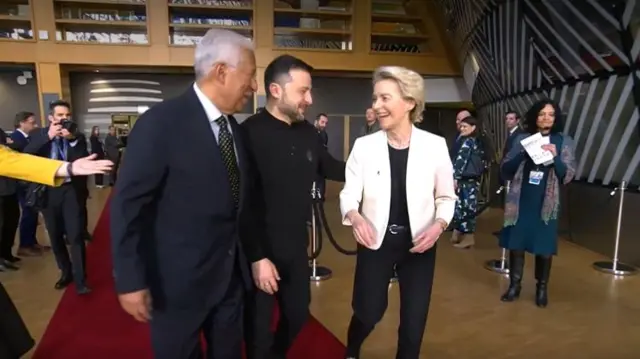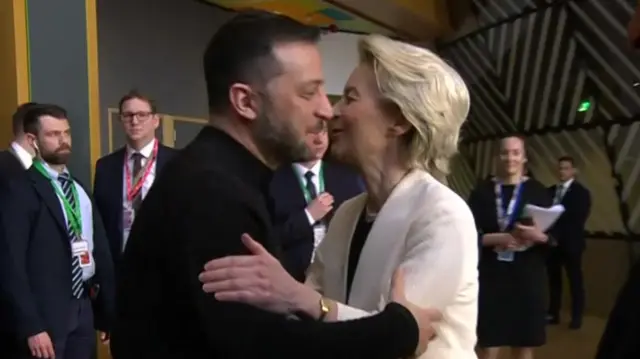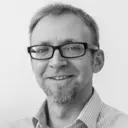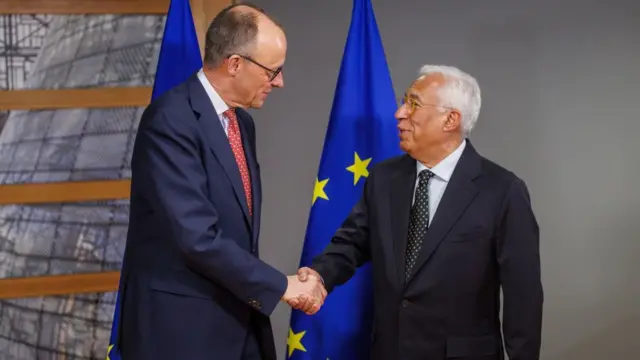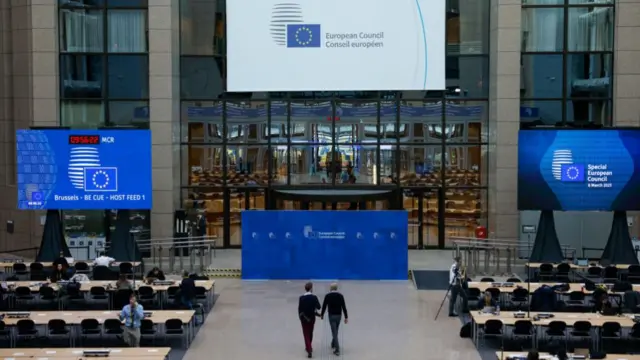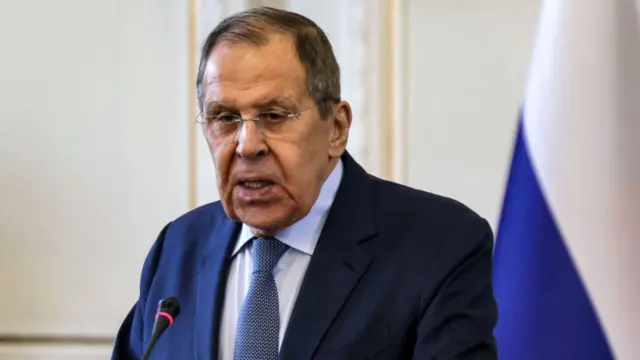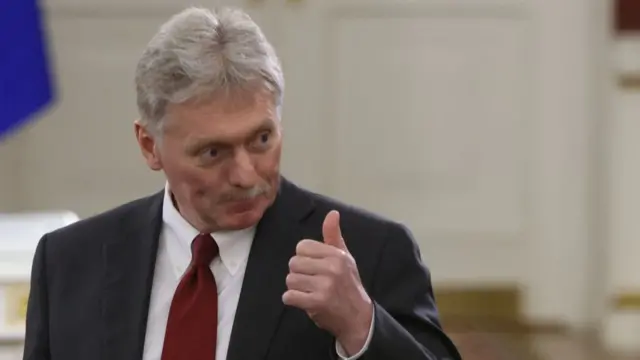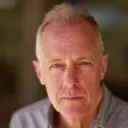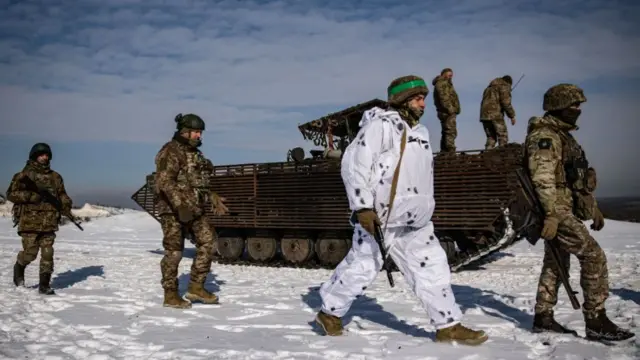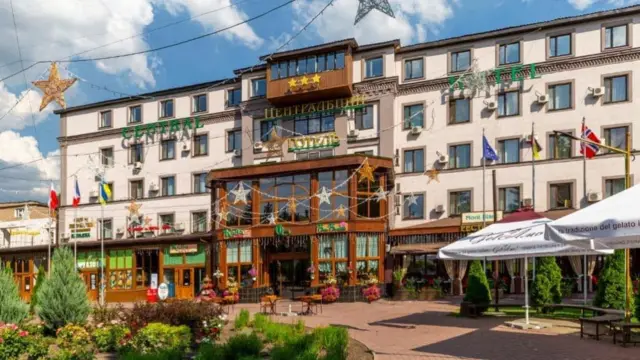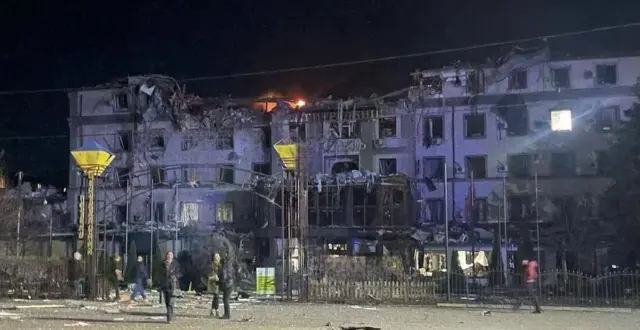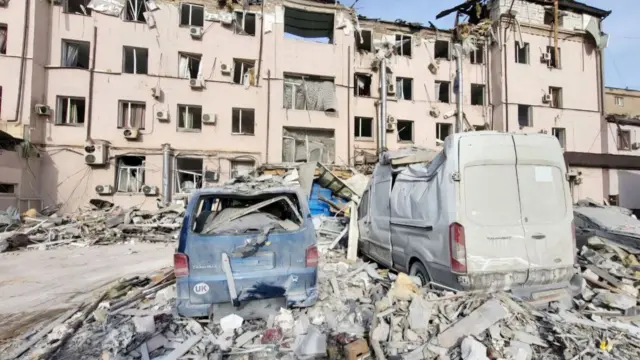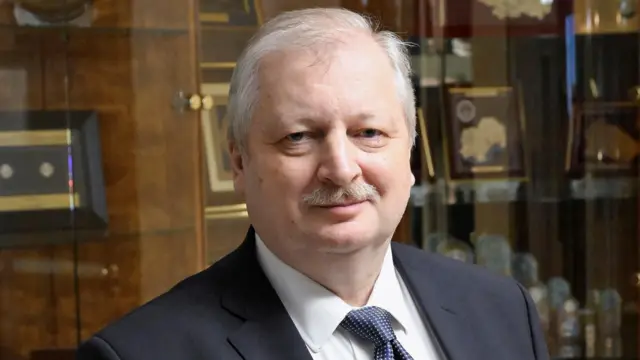'We really need to invest more in defence' - former Estonian PMpublished at 12:05 GMT 6 March
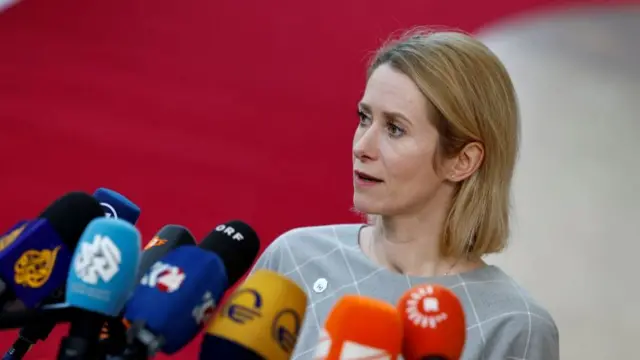 Image source, Reuters
Image source, ReutersWhile Ukraine is a crucial topic at today's meeting, today's summit is also a big day for Kaja Kallas, former prime minister of Estonia and vice-president of the European Commission.
EU leaders will also address what Estonia - which borders Russia - can do to boost its own security as well as reaching an agreement on Ukraine.
Addressing the press, Kallas says "all options are on the table" when it comes to financing Estonia's defence, from grants to the change of fiscal rules. "We really need to invest more in defence," she says.
On Ukraine, she says Europe's strength and economic power should not be underestimated.
